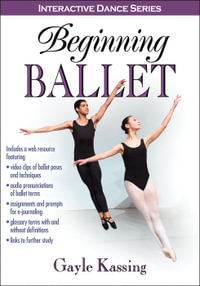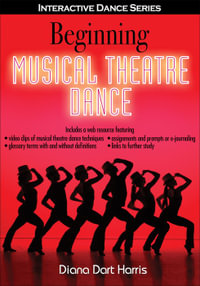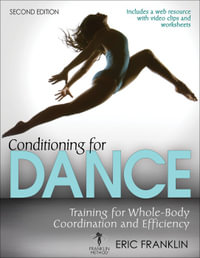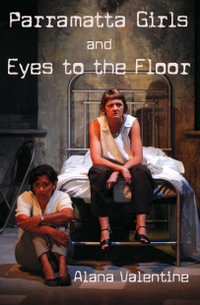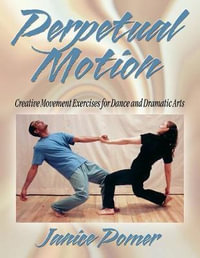This book analyzes how national and international dancers contributed to developing Mexico's cultural politics and notions of the nation at different historical moments. It emphasizes how dancers and other moving bodies resisted and reproduced racial and social hierarchies stemming from colonial Mexico (1521-1821). Relying on extensive archival research, choreography as an analytical methodology, and theories of race, dance, and performance studies, author Jose Reynoso examines how dance and other forms of embodiment participated in Mexico's formation after the Mexican War of Independence (1821-1876), the Porfirian dictatorship (1876-1911), and postrevolutionary Mexico (1919-1940). In so doing, the book analyzes how underlying colonial logics continued to influence relationships amongst dancers, other artists, government officials, critics, and audiences of different backgrounds as they refashioned their racial, social, cultural, and national identities.
The book proposes and develops two main concepts that explore these mutually formative interactions among such diverse people: embodied mestizo modernisms and transnational nationalisms. 'Embodied mestizo modernisms' refers to combinations of indigenous, folkloric, ballet, and modern dance practices in works choreographed by national and international dancers with different racial and social backgrounds. The book contends that these mestizo modernist dance practices challenged assumptions about racial neutrality with which whiteness historically established its ostensible supremacy in constructing Mexico's 'transnational nationalisms'. This argument holds that notions of the nation-state and national identities are not produced exclusively by a nation's natives but also by historical transnational forces and (dancing) bodies whose influences shape local politics, economic interests, and artistic practices.
Industry Reviews
"Reynoso offers a productive reformulation of danced Mestizaje as an anti-racist and inclusive instance of pluriversality that counters the racialized modernist pretense of universality, by centering Mexican contributions to the history of modern dance. This book is essential reading for scholars of performance and modern dance, but also of post-revolutionary Mexican visual culture at large." -- Mary K. Coffey, Professor of Art History and Latin American,
Latino, and Caribbean Studies, Dartmouth College
"In this compellingly written and deeply researched text, José Reynoso introduces the concept of embodied mestizo modernisms to theorize how national and international choreographers employed components of Indigenous, folkloric, ballet, and modern dance to both embrace and contest racial formations at key points in Mexican revolutionary and post-revolutionary history. A major intervention within dance and Latin American studies, it will shape future
thinking around the relationship between modernist dance practices, the transnational circulation of artists, and race." -- Victoria Fortuna, Associate Professor, Dance Department, Reed College
"Deeply researched and theoretically astute, Dancing Mestizo Modernisms makes a profound contribution to contemporary dance studies, fulfilling the imperative to create a global dance history that decolonizes the curriculum." -- Susan Manning, Bergen Evans Professor in the Humanities, Northwestern University
"In this meticulously researched book, Dr. Reynoso analyzes dance not only as an art form, but also as a way of circulating ideologies that have taken part in the construction of racial and social notion of what "Mexico" is. The author traces how as a specific cultural field dance participated in political, social, and bodily dynamics from the country's postcolonial formation in the 1820s until mid-twentieth century. The book's theoretical approach makes an
important contribution to the formulation of dance as an object of study while expanding our knowledge regarding art, cultural practices, and the construction of Mexico (and Latin American countries) as a
nation." -- Margarita Tortajada, National Center for Research, Documentation and Information Cenidi Danza "José Limón"






